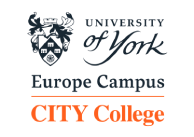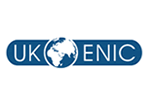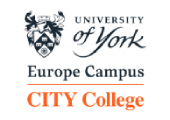Description of the programme
Dubbed from the start as a 'migrant crisis', post-2014 migration related challenges had been framed within the neoliberal notion of crisis management. Seven years on, the framing of ‘migrant crisis’ still features prominently in the public debate and is central to policy making at both the EU and the national level of the countries impacted by it. Crisis seems to have become a central logic of migration governance in Europe and beyond. However, it is becoming increasingly evident that this is not a migrant crisis per se. Instead, rather a crisis of hosting, of humanitarianism and ultimately a crisis of solidarity. That is a ‘crisis’, some might argue, produced not so much by the movement of people but the often violent and hostile response of states and EU agencies to this movement and a crisis produced by underlining social forces of war, global inequality, climate change, nationalism and racism. In this context, this summer school asks – what does the crises of solidarity look like in Europe today? What central struggles and tensions are shaping practices and acts of solidarity? And ultimately, what could solidarity look like in the context of the continual movement of people to Europe in large numbers?
The summer school offers participants theoretical and practical insights into this state of continuous and successive crises that Southeast Europe has been experiencing and how this reflects on the idea of solidarity, within the Eurozone ‘crisis’, the ‘crisis’ of liberal democracy, the ‘migrant crisis’ and the COVID-19 pandemic. Participants further learn from people ‘on the ground’, practitioners and internationally-acclaimed experts how these ‘crises’ re-enact each other, how they create the environment in which migration governance is currently formulated and how related narratives are constructed feeding into existing ones. Solidarity is understood among EU member states, as well as, from the host society towards migrants, among various migrant groups, or from migrant groups towards the host society. Furthermore, this summer school will offer critical engagement with moves to curtail and discipline acts of solidarity between host communities and people on the move. Radical acts and everyday forms of solidarity are increasingly criminalized across Europe, often under the pretence of stopping ‘human trafficking’. Students will consider how the ‘migrant crisis' has morphed into a crisis of not only movement but also democracy.
During the course of the summer school, students will address the following topics, along with the guidance and input of experts and practitioners: What are the long-term implications for a ‘new’ European politics of the language of 'migration crisis' and solidarity, given the rise in populism and far-right political movements across many European countries? What is life like now for those who moved a few years ago and remain in precarious living settings with insecure immigration status? How has discourse about the ‘migrant crisis’ penetrated narratives on existing ‘crises’, including the notion of solidarity? What has been the impact of the COVID-19 pandemic on different expressions of solidarity? How are local organizations and institutions, in the places where numbers of recent international incomers peaked in 2015-2016, moving on from the 'crisis' of arrival to longer term questions of solidarity, integration and settlement? What is the view from the field, shared by policy makers and practitioners?
Crucially, the programme offers participants direct hands-on experience ‘on the ground’ through the opportunity to participate in volunteering activities with an NGO.(Note: a list of NGOs will be disseminated among the participants interested in volunteering before the start of the summer school).
The summer school will be carried out in the form of lectures and workshops on migration, integration and solidarity, listening to real life experiences, views and insights from people working in NGOs and public authorities managing migration flows and integration in Greece, as well as volunteering on site with an NGO.








